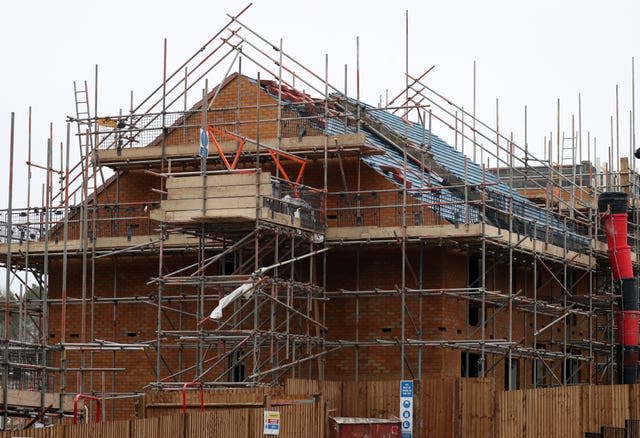Planning Bill must include climate goals for every development, advisers warn
The Government’s proposed planning reforms have come under new fire as its climate advisers warned ministers they are not delivering on environmental goals.
Ministers want to overhaul the planning system, arguing it would boost the building of high-quality, sustainable homes by streamlining the process and cutting red tape, but critics warn the plans will undermine local democracy.
Boris Johnson has come under increased pressure to rethink the upheaval as it was partly blamed for the Conservatives’ shock defeat in the Chesham and Amersham by-election.

Now the Government’s advisory Climate Change Committee has raised concerns over insufficient sustainability tests in the Planning Bill and a lack of guidance for councils looking to approve developments such as the controversial new coal mine in Cumbria.
It has warned further easing of permitted development risked locking in problems such as overheating in flats converted from office blocks in heatwaves that will worsen as the climate changes.
The Planning Bill must ensure that every development is assessed against efforts to cut greenhouse gas emissions to zero overall – known as net zero – by 2050 and help the country cope with inevitable climate impacts, it urged.
A report from the committee warned progress has fallen short on ensuring suitable building standards to tackle climate change.
And the Planning Bill “misses the powerful opportunity” to ensure developments and infrastructure are compliant with the net zero goal and are resilient to climate change, it said.
Committee chairman Lord Deben pointed to the Chancellor’s new requirement that the Bank of England now has to act in light of the Government’s commitment to net zero – and said the same is needed for planning.
He said Cumbria County Council had “no kind of guidance” on what it should take into account on climate when assessing a new coking coal mine in the county, which prompted widespread concerns and will now be judged by the Government.
Lord Deben called for a compulsory requirement to ensure climate commitments were taken into account.
“It has to say that every decision, whether it’s building half a dozen houses in Framlingham or a major infrastructure project, has to be seen through the lens of net zero.
“The reason is if we don’t do that, we are not going to meet net zero,” he said.
Lord Deben said that since the Conservatives had reneged on a commitment to zero carbon homes, a million houses had been built that would need retrofitting because the planning system did not insist they were both ventilated to cope with heatwaves and warmed with low carbon heating.
As a result, a million families were going to have to pay the costs of retrofitting which is far more than installing measures in the first place, he said.
Baroness Brown, chairwoman of the Adaptation Committee, said the single sustainability test proposed in the consultation on the Planning Bill was not enough.
“It absolutely needs to be a requirement for resilience, and climate change, net zero, to be embedded in every decision,” she said.
It also proposed an extension of permitted development which she said “has caused some of the least habitable homes we have seen, with some shocking overheating in summer in office blocks converted to flats”.
She said “that’s clearly not the right way forward” and called for more powers for local authorities to think about what was needed in their areas, such as higher water efficiency standards in the South East.
Baroness Brown added: “What the Government needs is a vision for a well-adapted UK, something positive that shows us how we can live with changes of around 2C of warming, and how we can do that whilst enhancing our environment and nature at the same time if we take the right actions.”
She said the vision should include greener cities, sustainable urban drainage to reduce flooding and support city wildlife, more and healthier woodlands, water conservation and enabling farmers to grow new crops.
“These are the sorts of things we need in a Planning Bill.
“A Planning Bill should give us a vision for a well-adapted UK which is a green and pleasant land for everyone,” Baroness Brown urged.
A Government spokesperson said: “All developments should take into account the impacts of climate change and responsibilities to the environment, as well as prioritise building on brownfield and urban land, so that we put green spaces, communities and environmental protection at the heart of the planning process.
“We are also ensuring new homes are producing less emissions and that new housing developments are leaving nature and biodiversity in an overall better state than before development.”

 Yahoo Movies
Yahoo Movies 